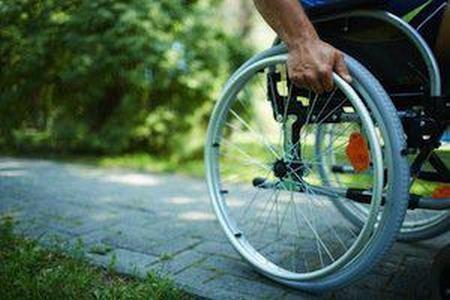Accommodations and Issues: Immigrating While Disabled
 The disabled, like everyone else, are entitled to a fair review of their applications to immigrate to the United States. However, many times, they are ruled inadmissible solely because the law meant to protect the public has not been updated along with the times. If you are disabled and wish to immigrate to the United States, there are factors of which you should be aware.
The disabled, like everyone else, are entitled to a fair review of their applications to immigrate to the United States. However, many times, they are ruled inadmissible solely because the law meant to protect the public has not been updated along with the times. If you are disabled and wish to immigrate to the United States, there are factors of which you should be aware.
The “Dangerous Behavior” Bar
8 U.S. Code § 1182 provides that someone with a physical or mental disorder that may be dangerous to property or safety and welfare of the person or others (or a “history of behavior” associated with the disorder) is inadmissible. Proponents argue that this is in service of the public good—that anyone who has a history of violent or frightening behavior, regardless of intent, may cause harm to the people the law is designed to protect.
Others question exactly who the law is meant to protect. If someone has, for example, obtained counseling for his or her particular disorder, and has a long period of successfully managing their symptoms, it seems arbitrary and contrary to public policy to penalize them by denying them a visa. There is an appeals process if you are ruled to have a disability that renders you dangerous (or capable of ‘dangerous behavior’), but it is only to a medical board, not to a higher immigration authority.
Regardless of the possible punitive consequences, however, it is worth noting that this bar only applies if a person has both a “physical or mental disorder” and a pattern of behavior related to the disorder that could be potentially dangerous. The definition of “physical or mental disorder” is vague, directing that an immigration official be guided by policy from the U.S. Department of Health & Human Services. However, in practice, much of these decisions are left up to the individual official’s discretion.
If a potential immigrant can provide documentation that shows a pattern of acceptable behavior and a lack of propensity to harm, he or she is often granted the visa they seek, at least partly due to this vagueness. If he or she is denied, disability waivers are also available.
The Public Charge Bar
The other reason that disabled people are sometimes denied entry to the U.S. is the so-called ‘public charge’ question. Anyone, not just a disabled person, is subject to a ruling of inadmissibility if they cannot prove they have sufficient support not to become a public charge under INA §212(a)(4). A public charge is someone who is primarily dependent on government assistance, rather than any kind of private income.
Despite the public charge bar being, in theory, applicable to everyone, it disproportionately affects the disabled. Officials have cited concern over the disabled person possibly losing his or her job or becoming more disabled over time (resulting in an inability to work), or in the case of those with mental disabilities, possibly becoming stranded in the country with no ability to take care of him or herself.
Contact an Immigration Attorney
If you or a loved one has a disability that might result in an inadmissible finding, having a professional on your side may make the difference between success and failure. The skilled DuPage County immigration attorneys at Mevorah & Giglio Law Offices have extensive experience in these types of cases, and are happy to put it to work for you. Contact us today to discuss your options.
 English,
English,
 Spanish,
Spanish,
 Polish,
Polish,
 Urdu
Urdu












 Make a Payment
Make a Payment



